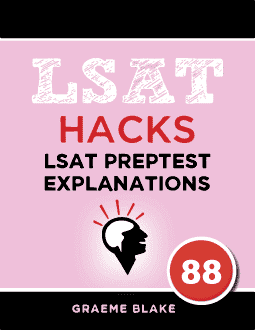DISCUSSION: They agree on the principle of how to figure out customary law, which is that what’s important is nation’s behaviours, not just what they say. Thus, if nations aren’t acting in accordance with a principle, then it isn’t a CIL “norm”. We get this from paragraph 2, which talks about the scholars’ criterion:
If CIL norm ➔ nations abide principle in practice
But since these nations aren’t abiding the principle:
If nations don’t abide principle in practice ➔ not norm
The author agrees with this.
___________
- We don’t know this. The passage says nothing about the relationship between extensive empirical studies and the effectiveness of environmental treaties.
- The scholars don’t talk about direct negotiations. The author is the one who argues direct negotiations are more effective.
- “Difficulty to ascertain” isn’t mentioned in the passage.
- CORRECT. This matches our prephrase.
- The scholars don’t talk about treaties, and there’s nothing in the passage to suggest this.


Leave a Reply